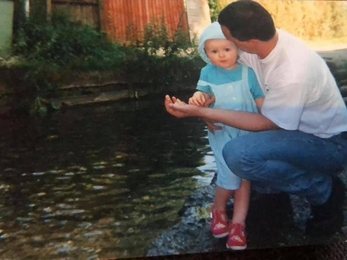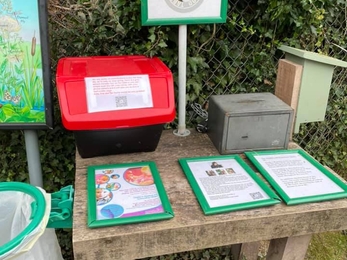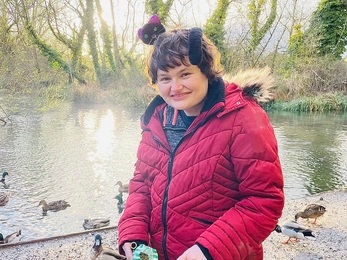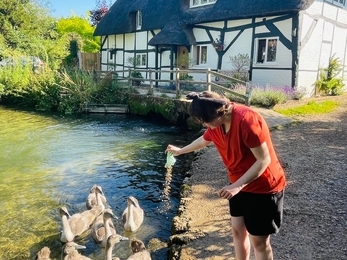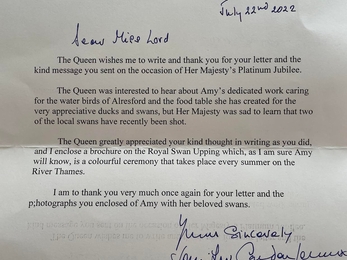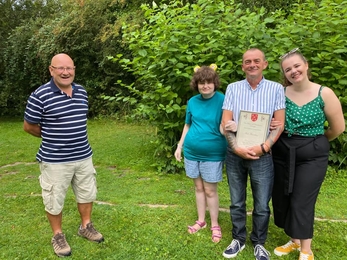I live with my daughter Amy in Alresford, close to a chalk stream called the River Alre. Amy is an amazing young lady, who lives with and has overcome so very much in her life. She has scoliosis, mobility restrictions, limited verbal communication, significant learning difficulties, and complex epilepsy that causes her to have seizures several times a night even with medication. I’m just her dad, who is inspired by her every single day and proud beyond words. Together, we are Amy’s Duck Food Table.
About three years ago, Amy had completed college at a specialist unit. As she will never work, I wanted her to have a purposeful, meaningful, motivational activity in her day, just like everyone else. She has always loved feeding the ducks and swans at our local chalk stream, but I had read about the problems it can cause. I’ve seen bread, sausage rolls, and even mince pies in our stream, all of which aren’t good for waterfowl. They can get malnourished or worse – one duck recently needed surgery after eating cat biscuits. Any uneaten food goes mouldy, which can be bad for the habitat too.
Pictured below (click to expand): Amy and Bob by the River Alre in Amy's childhood / The current iteration of Amy's Duck Food Table.


